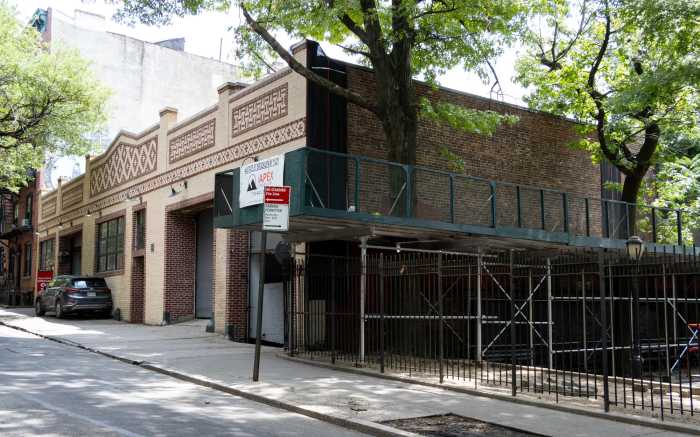You’ve heard of Hershey Park, but have you heard of Nestle Park?
The Nestle Corporation — whose very name is synonymous with Big Cocoa — is shelling out $60,000 to help the state’s cash-strapped parks agency construct a playground in East River State Park in Williamsburg.
The cash — which is part of a $350,000 statewide commitment from Nestle’s Juicy Juice brand of sugar-heavy drinks — will be coupled with donations to construct the playspace, possibly by spring.
“Our commitment is to really try to promote and develop really healthy children,” said Kim Rguem, a spokeswoman for Nestle Beverages, a division of the world’s largest food company. “There didn’t seem to be enough money [so] we felt it was a great way to be consistent with what it is we’re trying to do, but in a really socially responsible way.”
That would be a shift in policy, given that juice drinks — even 100-percent fruit elixers like Juicy Juice — have been seen as responsible for part of the childhood obesity epidemic because the consumption of juice tends to supplant eating healthier foods, studies have shown.
An eight-ounce serving of Juicy Juice has 26 grams of sugar and 110 calories.
The Juicy Juice-funded playground will take up a prominent plot in the relatively barren waterfront greenspace between N. Seventh and N. Ninth streets, which hosted the popular Pool Party concert summer.
The playground will include low berms for children to play on, a dry rocky streambed crisscrossed by bridges, and the centerpiece: a wooden train that children can climb through that will pay homage to the park’s prior use as a train yard.
“This is very much in keeping with the park itself, which is a very natural post industrial area, it’s not glitzy, it’s not high tech,” said Rachel Gordon, the state’s director of New York City parks.
Gordon told The Brooklyn Paper that the cash couldn’t have come at a better time.
“We’re delighted that Juicy Juice is being so generous,” she added. “It’s particularly appreciated when we are going through such extreme budget cuts.”
This isn’t the first time that funding was a problem for the riverside greensward.
Last winter, the state was closed the park because of a 10 percent budget cut to the Department of Parks, Recreation, and Historic Preservation, but the agency reopened it after implementing cost-cutting measures and receiving pledges from community groups that promised to help maintain the space.

























